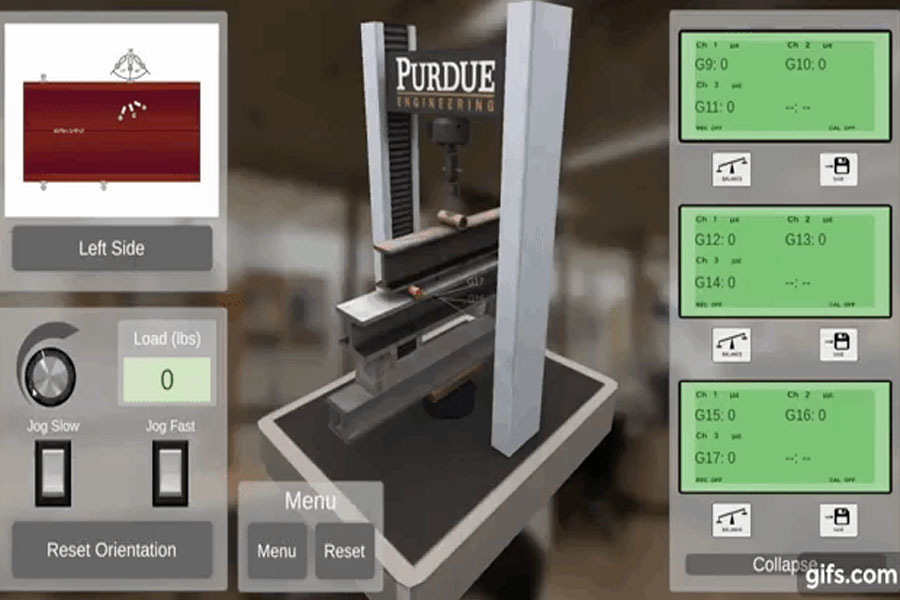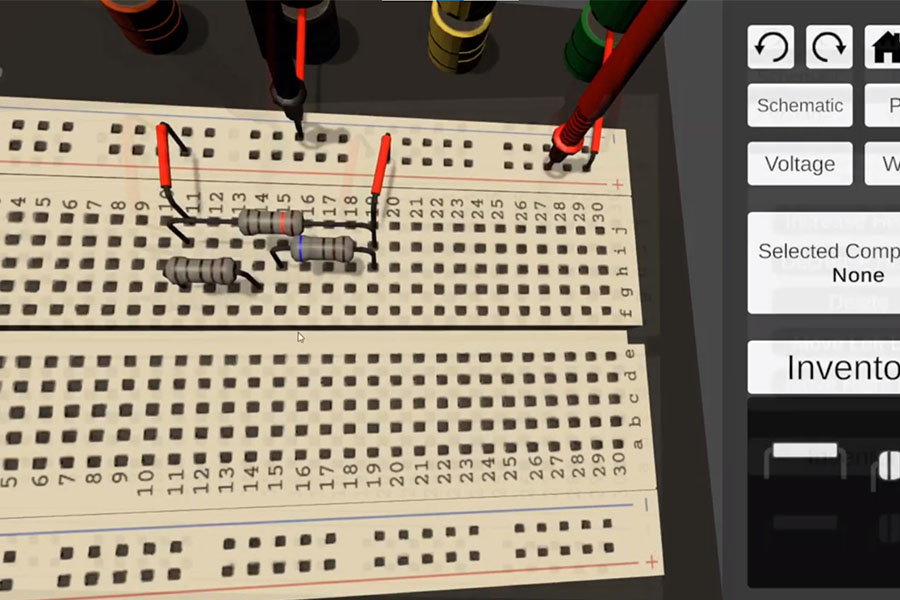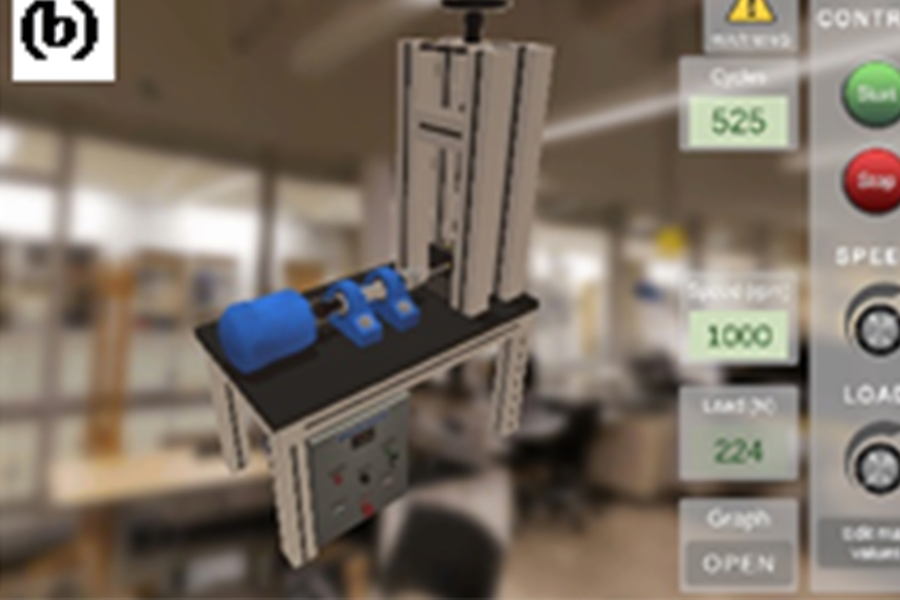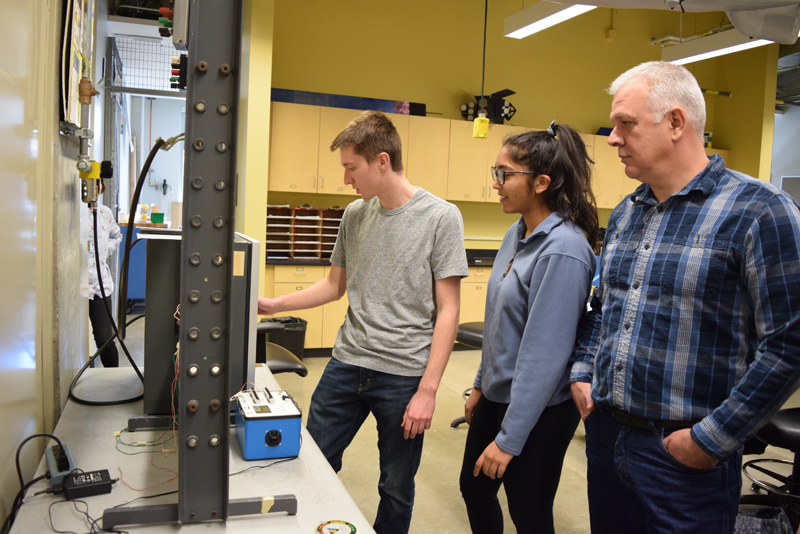Virtual Labs within the College of Engineering
Virtual Labs can enhance the quality of engineering education thereby deepening each students understanding and grasp of the course material. As one example for the usage of Virtual Labs, they can serve as pre-work for the students to complete prior to attending the in-class physical labs, which will allow the students ample opportunity to practice an experiment and understand concepts and safety procedures beforehand, thus increasing the efficiency of the student’s and instructor’s time in the physical labs. The outcomes of the increased student enrollment in the College of Engineering constitute a strain on laboratory equipment and scheduling, limitations of the physical space within labs, and restrictions for students to gain hands-on experience with the equipment or receive feedback from the instructor. As a means to accommodate more students and improve the quality of their education, Virtual Labs can provide students (i) a more enriching lab experience, which is manageable and scalable given potential throughput issues of current lab environments, (ii) more opportunities to interact with equipment, which may be limited with large lab group sizes, (iii) opportunities for involvement in longer timescale experiments, (iv) integration with physics-based simulation (and computational modeling) software to compare against experimental results, and (v) supervised feedback on experiments.
Additionally, Virtual Lab development can dramatically improve the quality of Purdue Online Learning Program, by providing active learning opportunities and appealing to students that succeed by employing more diverse learning styles. Specifically, Virtual Labs would provide a means of interaction and immersion in the course material that is often difficult in connecting with students, especially distance students that study off-campus. By harnessing advanced technology, we will be in a better position to engage with students, in order to provide important learning opportunities through technological advances.
The implementation and adoption of Virtual Labs at Purdue University offers a disruptive means for next generation education of our students. Virtual Labs can provide a means to incorporate cutting edge technology into our curriculum. Additionally, with the need to adapt instruction as a result of the COVID-19 pandemic, Purdue faculty are rapidly working to make their course content as flexible, scalable, and effective as possible by making labs available in various instructional environments. Whether the goal is to de-densify a classroom space, create supplemental materials for a hybrid class, provide accessibility to students unable to attend live classes, or transition to a fully online environment, virtual labs can provide customized solutions to enhance the learning experience for each course. With our immediate COVID-19 response, Virtual Labs offer a promising opportunity for additional student learning strategies, while it is expected that the Virtual Labs developed would find a permanent home in the course’s curriculum.
College of Engineering Resources and Support for Virtual Labs:
A formal program announcement is forthcoming. If there is immediate desire to develop and deploy Virtual Labs, the instructor is encouraged to contact: msangid@purdue.edu
Point of Contact:
For College of Engineering courses, including first year courses in College of Engineering and College of Sciences, please contact:
Dr. Michael D. Sangid
msangid@purdue.edu
Dean’s Fellow for Virtual Labs
Additional information regarding instructional design support and educational assessment related to Virtual Labs through Purdue’s Center of Instructional Excellence and Innovative Learning Team are available: https://www.purdue.edu/innovativelearning/developing-courses/virtual-labs





